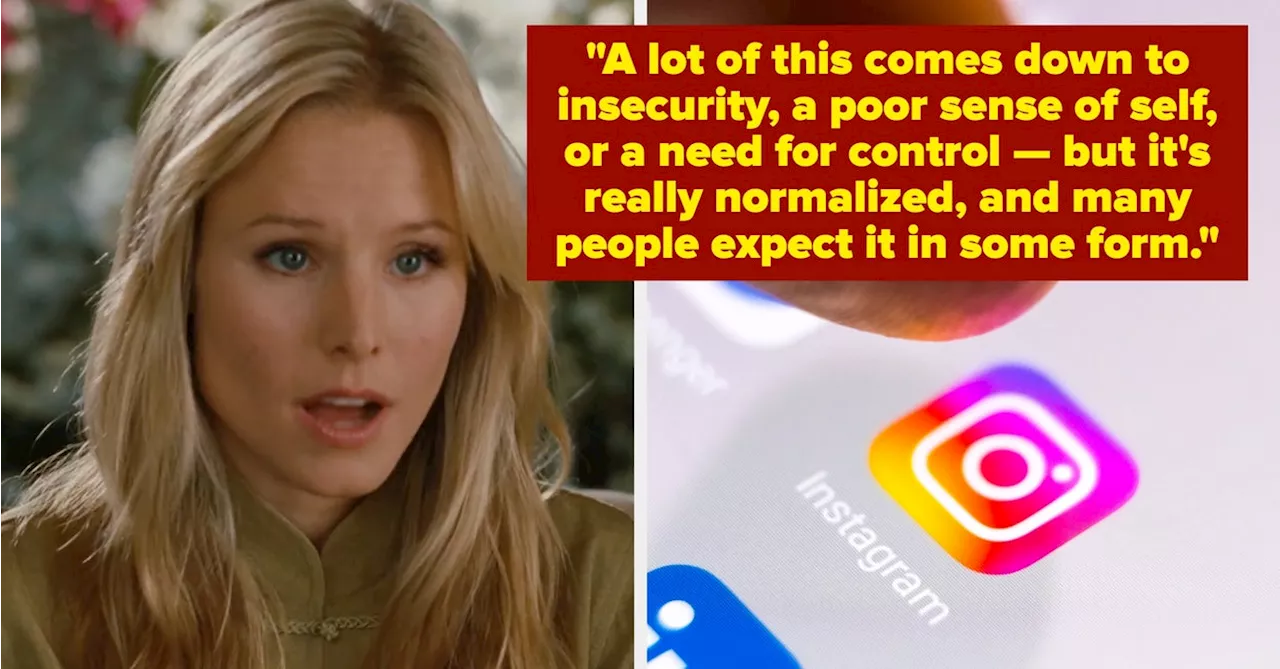Health
Therapists Identify Red Flags in Toxic Relationship Behaviors

Therapists and counselors observe subtle yet significant behaviors in relationships that often go unnoticed by their clients. These patterns can erode connections over time, leading to toxic dynamics that affect individual well-being. In discussions with various mental health professionals, several common red flags emerged as indicators of unhealthy relationship habits.
Isolation and Control
A notable concern among therapists is the normalization of extreme control in adolescent relationships. One therapist, who primarily works with teenagers, highlighted a common trend where young couples maintain little to no contact with individuals of the opposite sex outside their partnership. This behavior, often seen as protective, can create an unhealthy atmosphere where trust is stifled. “No matter who you’re dating, you should feel comfortable enough to interact with others,” the therapist stated, emphasizing that this kind of trust is fundamental in any relationship.
Additionally, emotional manipulation often manifests through threats to end the relationship during arguments. This tactic escalates conflicts unnecessarily, creating an environment of fear and instability.
Patterns of Emotional Manipulation
Therapists also point to a phenomenon known as “weaponized incompetence,” frequently observed in heterosexual couples. This occurs when one partner feigns ignorance regarding basic responsibilities—such as planning meals or managing household chores—effectively offloading these tasks onto the other. “It’s not about capability; it’s about accountability,” noted one professional, who spoke to the burnout such dynamics can create.
Another troubling pattern is the tendency to use vulnerability as a weapon. In high-conflict scenarios, one partner might bring up sensitive moments during arguments, eroding the psychological safety necessary for open communication. Such behavior can severely impact emotional intimacy and trust within the relationship.
The concept of “confirmation bias” also plays a role in toxic relationships. Individuals may unconsciously seek validation of their fears of rejection or abandonment, often rooted in unresolved trauma. This cycle can perpetuate negative dynamics, making it difficult for couples to break free from unhealthy patterns.
Therapists urge their clients to recognize the significance of addressing conflicts openly rather than sweeping them under the rug. Avoiding uncomfortable conversations might seem like a way to maintain peace, but it often leads to resentment and emotional distance.
Recognizing Emotional Immaturity
Another concerning behavior is when individuals describe their ex-partners as “crazy” or unstable without reflecting on their own contributions to these dynamics. This tendency can signal emotional immaturity and deflection, which are barriers to personal growth. As one therapist pointed out, “If the common denominator in all your bad relationships is you, that’s worth exploring.”
Moreover, therapists highlight the dangers of constant joking at a partner’s expense, particularly in public settings. While these behaviors may be cloaked in humor, they often mask deeper resentments and power imbalances, undermining intimacy.
The need to assert one’s identity can also lead to unhealthy relationship habits. When one partner uses personality traits as an excuse for poor behavior—saying phrases like, “That’s just how I am”—it can prevent necessary growth and flexibility in the relationship. Healthy partnerships require mutual effort, and a refusal to adapt can signal a lack of commitment.
In summary, recognizing these toxic behaviors can significantly impact the health of a relationship. Addressing red flags early on can help partners foster a more supportive and trusting environment. Mental health professionals encourage open dialogue about these patterns, aiming to create healthier dynamics that benefit both individuals involved.
If you have experienced any of these patterns in your own relationship or have insights as a mental health professional, sharing your experiences can contribute to a greater understanding of these critical issues.
-

 Lifestyle4 months ago
Lifestyle4 months agoLibraries Challenge Rising E-Book Costs Amid Growing Demand
-

 Sports4 months ago
Sports4 months agoTyreek Hill Responds to Tua Tagovailoa’s Comments on Team Dynamics
-

 Sports4 months ago
Sports4 months agoLiverpool Secures Agreement to Sign Young Striker Will Wright
-

 Lifestyle4 months ago
Lifestyle4 months agoSave Your Split Tomatoes: Expert Tips for Gardeners
-

 Lifestyle4 months ago
Lifestyle4 months agoPrincess Beatrice’s Daughter Athena Joins Siblings at London Parade
-

 World4 months ago
World4 months agoWinter Storms Lash New South Wales with Snow, Flood Risks
-

 Science3 months ago
Science3 months agoSan Francisco Hosts Unique Contest to Identify “Performative Males”
-

 Science4 months ago
Science4 months agoTrump Administration Moves to Repeal Key Climate Regulation
-

 Business4 months ago
Business4 months agoSoFi Technologies Shares Slip 2% Following Insider Stock Sale
-

 Science4 months ago
Science4 months agoNew Tool Reveals Link Between Horse Coat Condition and Parasites
-

 Sports4 months ago
Sports4 months agoElon Musk Sculpture Travels From Utah to Yosemite National Park
-

 Science4 months ago
Science4 months agoNew Study Confirms Humans Transported Stonehenge Bluestones









